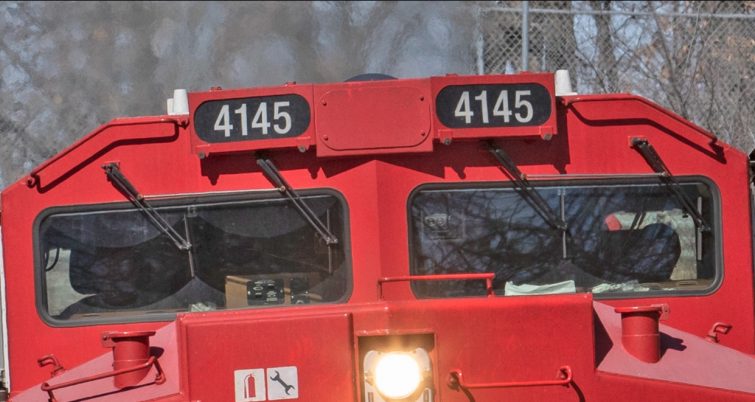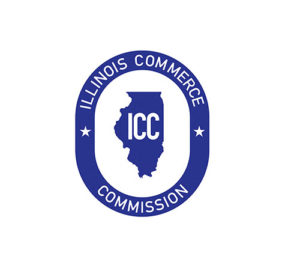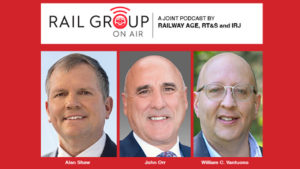AFL-CIO Transportation Trades Department – PSR is gutting American freight rail system
Written by David C. Lester, Editor-in-Chief
The Transportation Trades Department of the AFL-CIO released a statement about its view of precision scheduled railroading and the impact it’s having on freight railroads in America. Below are some excerpts from the statement, along with a link to the complete statement on the Brotherhood of Locomotive Engineers and Trainmen’s website.
Please note that the positions taken in this AFL-CIO policy statement do not necessarily reflect the views of Railway Track & Structures, Simmons-Boardman, or any of its affiliates. This material is presented only in the interest of balanced journalism. DCL
The success of the rail industry is premised on the fair treatment and utilization of its frontline workforce, balanced economic regulations and an expectation that railroads will meet their service obligations. Unfortunately, the introduction of an operating model known as Precision Scheduled Railroading (PSR) threatens to weaken these conditions and undermines our freight rail industry.
Freight railroads today are generating record revenues and operating at high levels of efficiency. But for some, these profits are not enough. To satisfy their outsized needs, short-term investors and hedge fund managers have forced PSR on large segments of the freight rail industry. This decision is not based on what is best for customers, workers, or even the long-term needs of the industry—it is about satisfying what Transportation and Infrastructure Committee Chairman Peter DeFazio described as the “Wall Street Jackals” who now dominate this sector.
Mass layoffs have been a disturbing and central component of PSR operations. In just the first two years after CSX implemented this model, the carrier fired 22% of its equipment maintenance workers, 16% of its train crews and 11% of its maintenance-of-way employees. In a 2018 interview, Union Pacific’s CEO proudly stated that, “We’re in the process of eliminating about 500 jobs [and] there’s more of that to come.” Railroads may want us to believe these workers are extraneous, but it has become clear that reductions are simply about cutting costs, even if those cuts result in the degradation of safety. Workers who remain have been forced to do more with less, and are faced with discipline or dismissal if they refuse to comply. The consequences of these choices are no longer hypothetical.
Carriers are also compensating for reduced staffing by requiring remaining employees to perform work outside their craft in addition to fulfilling their regular duties. At best, this may involve employees performing tasks with which they are not experienced. At worst, employees may be forced to do work for which they are not qualified. Furthermore, rather than maintaining appropriate staffing levels, carriers are mandating overtime for workers who are already stretched thin. In an industry where fatigue is a constant risk factor, exposing employees to additional fatigue by asking them to work longer and faster while performing multiple jobs is a recipe for disaster.
When TCU and IAM conducted a survey of their members on the impacts of PSR, the answers painted a deeply disturbing picture of day-to-day operations. One responding machinist reported being sent, by himself, to work with dangerous and heavy equipment that once required two workers, and expressing fear that no one would know to call for help if he was injured. A carman wrote that at his yard, management now demands brake inspections be performed at the extraordinary and unsafe pace of just 60 seconds per car. Employees of both crafts say critical safety rules designed to protect employees from being hit by equipment are being ignored in the name of speed. Numerous employees stated that re-shift safety briefings—a common industry practice—are being eliminated in order to better utilize man-hours. And commonly, carmen are being forced to ignore FRA defects. One consistent theme emerged throughout the responses: railroads value getting trains moving and moving quickly above all else, including safety.
Precision Scheduled Railroading works for the few—wealthy investors who have little concern for anything other than their bottom lines. These investors are fickle, and when they have extracted every last cent out of the railroad industry, they will move on to the next sector. Meanwhile, we will be left with a hollowed-out system that does not serve its customers, has abandoned safety, and has pushed out thousands of skilled workers who may never return. This trajectory can be changed, but doing so will require active engagement from Congress and federal safety and economic regulators, as well as a serious rethinking of operational strategy from freight rail carriers. TTD calls on them to reverse the damage caused by PSR before it becomes too late.
To access the full statement, click here.
For the latest news, go to rtands.com.





